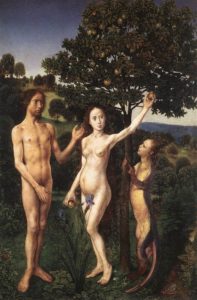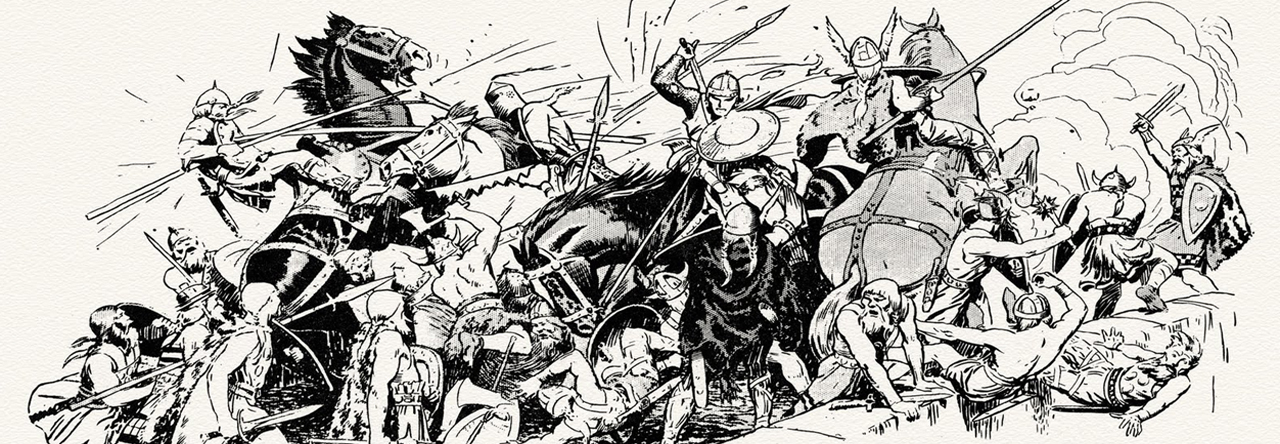Hell is but a state of mind, they say, and I certainly feel like in Hell for not being able to attend in August the Stratford Festival’s modern Paradise Lost, a theatrical adaptation of Milton’s epic directed by Jackie Maxwell and written by Erin Shields. It’s heralded as a “witty, modern, feminist retelling of” Paradise Lost. So I do fervently hope that this retelling will go beyond the casting choice for Satan who is to be played by Lucy Peacock, although, I must admit she looks quite intriguing on the play’s poster image dressed in full snakeskin outfit (PETA be damned, its probably fake anyway ;)).

Lucy Peacock as Satan in Stratford Festival’s modern Paradise Lost. Photography by Clay Stang – The Garden.

The Fall by Hugo van der Goes (1467-68). Oil on oak. Kunsthistorisches Museum, Vienna
Not that I doubt Peacock’s ability to be a deviously witty tempter. I am cautious in my anticipation because of the long literary and visual art’s tradition of associating sin with Eve, and consequently with women, which has already produced paintings in which the distinction between Satan (the tempter) and its erstwhile target (Eve) has been blurred rendering the Tempter and its manipulated subject (the snake) into a single female snake character; a fit representation from the perspective of the patriarchal discourse that puts the whole blame of the-Fall-debacle on women. But this gender bending is hardly enough in and of itself from a feminist point of view that would ultimately challenge this resilient patriarchal assumption (i.e. that women are to be blamed for all the bad things befalling mankind). All in all, I am curious in what way is this retelling going to be a feminist one.
Also, I am positively intrigued by the authors’ decision to work with a small cast and, hence, have actors play two polar opposite characters in different parts of the play (e.g. Jessica B. Hill playing both the character of Beelzebub and Gabriel). Very early modern indeed.
I am looking forward to the play’s reviews but just in case G. S. is reading this and thinking about founding a scholar of modest means from East-Central Europe, I would be delighted to attend in person and watch it myself. Just in case.

Leave a Reply
You must be logged in to post a comment.